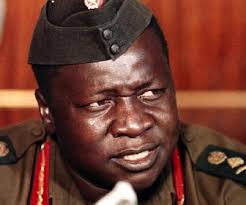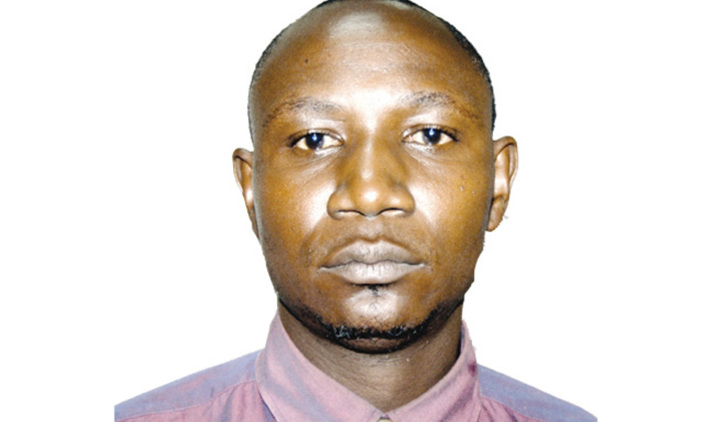By Dr. Vasanti Makwana
Canada: It started with a telephone call around 2:30 am in the night. I was on call for hemodialysis and the coordinator at the other end, sounding very frazzled, told me that she is sending a car to my compound and be ready to come to the hospital as one of our VIP patients needed an emergency dialysis. I got my bearings and got ready to be driven to the hospital by a male chauffeur.
I had gone to work at King Faisal Specialist Hospital and Research Centre in Jeddah, Saudi Arabia. It was a one-year contract. Females at the time were not allowed to drive a car. Plus, when out of our compound we had to don a long black covering over our clothes called “Abaya.” Women to this day have to be covered when out. It is the law there.
I reached my department and got busy to ready my machine and equipment needed to dialyze a patient. I called the ER (emergency unit), to find out the history of the patient. The doctor at the other end was almost in a panic and was screaming, “the patient is on his way to the dialysis unit and needs to be dialyzed immediately and you have to remove at least 4 litres of fluid from his body. The patient is Idi Amin Dada!”
I thought it cannot be the man of my childhood nightmares! It just cannot be him. Suddenly a very big man was wheeled in the unit by a doctor and an attendant from the emergency unit. His large feet were dangling over the gurney. He had an oxygen mask over his nose and mouth with the tubing attached to the oxygen cylinder.
It was the man who had forced over 60,000 Ugandan Asians to leave the country in 1972—accusing them of “milking Uganda’s money.” At that time, we, the Ugandan Asians, owned 90% of the country’s businesses and accounted for 90% of Ugandan tax revenues. The people from the Indian subcontinent and their descendants are very industrious, hard-working people. Our ancestors had made Uganda our home. It was the only home we knew and it was a paradise on earth. The country is situated on the Equator so the climate is very pleasant all year round. The lush greenery, the lakes and rivers, the fauna and the beautiful birds are just a part of that piece of earth once called “The Pearl of Africa.”
Leave the country within 90 days or face the dire consequences, he had broadcast over the radio and television.
I was about 14 years old when my parents decided that we had to leave. It was not safe at all anymore in our beloved country. Our lives were in danger. My father had directly witnessed the atrocities committed by the military personnel—the so-called goons of Idi Amin, the then dictator of Uganda.
By October 1972, both my parents and the four of us children were in the UK. My elder brother was already in England; he had moved there 2 years before, for higher studies. We are five siblings in total.
We were given refugee status and taken to a camp in a remote part of England. The British welcomed us with open arms. We were treated so well and with such dignity that even my father was impressed with the hospitality we were shown by the English people.
It was difficult for my parents to adjust to a new environment, different language, an alien culture and customs but, for us kids, it was an adventure! Children are more resilient and adaptable to a new environment. We buried our turmoil, fears and anxieties somewhere deep within our beings and just got on with it.
While taking a report from the attending doctor, I was also examining my patient. My heart had started to pound faster and I thought people around me could hear it! The doctor was very nervous and telling me to put the patient on the dialysis machine ASAP.
I was very near the patient and could see that he was not doing well at all. His breathing was very laboured, his heart rate was very fast, and despite having oxygen, the oxygen saturation in his body was quite low.
Suddenly his hand snaked over the gurney and he got hold of my arm. I was terrified and stood almost motionless. All the fears of what could have become of us flashed before my eyes. All the childhood memories and nightmares of what could have been. All my mind was saying to me was: Vasanti compose yourself! He is an old man who cannot harm you and needs your help now.
In his feeble voice he said to me while holding my arm “Please help me … I’m very sick”.
In the ER, he was told that once the extra fluid was removed from him via hemodialysis, he would start feeling better. So, seeing me at his side, he must have thought I was the one who was going to cure him miraculously. At that moment I got the courage to put my other hand over his and was able to reassure him.
I told him: “Sir, you are in good hands, and we will do our best to help you get better.”
I had attached him to our monitors and could see that he needed to be stabilized before I started his treatment, so I called an ICU consultant. He was from Canada too. It took him no more than a couple of minutes to arrive at my unit. He examined the patient and said: “let’s take the patient to the ICU and you can treat him there after we have stabilized him.” He was glad that I had reached out to him for help as he knew that I could not possibly treat this patient by myself in my unit—Idi Amin was very unstable physically and anything could have happened to him during dialysis.
The Consultant informed the ER doctor that the patient would be dialyzed once he was stabilized in the ICU.
We proceeded to wheel him to ICU. The doctor from the ER was visibly relieved and happily walked away from us—it was our responsibility now.
As we wheeled him in one of the large ICU rooms, I was left alone in the room with him for a few minutes before the ICU staff came in to stabilize him. He kept on looking at me, as if pleading for his life. He was holding on to the words he had heard in the ER that we will dialyze him and remove the extra fluids pressing on his lungs and that will help him breathe easier.
I only had a few minutes to tell him what I needed him to know and understand before he was intubated and attached to machines to help him breathe and perhaps put him in an induced coma until he was stabilized.
I was virtually shaking, but I picked up enough courage to speak to him. This was the only chance I had to be able to speak to him one on one.
I looked straight at him, into those frightened eyes, and told him very clearly: “Look at me. I am one of those Ugandan Asians you had thrown out of the country all those years ago.”
His eyes widened. I could see his facial demeanour change as the fog of yesteryear started to clear in his head. The fear I saw in those eyes, I will never ever forget.
That look he had is etched in my mind forever. It only took a split second but, at that moment, all my childhood nightmares about this man just evaporated and I had the power back.
He was a pathetic sick old man fighting for his life and now he was trying to process that the person who was supposed to help make him better is someone he had wronged all those years ago in Uganda.
I held his gaze, sighed, and very clearly told him: “Don’t be afraid. I won’t harm you. I’ll help you get better. But I want you to know that my father lived in the UK for many years. It was never his home and he never forgave you. Despite having wronged so many of us by evicting us and stealing everything from us, most of us Ugandan Asians are doing very well.”
Soon after, his care was taken over by ICU staff, he was stabilized and I was able to give him dialysis. His hemodynamics improved remarkably but in the following days he developed what is known as Toxic Epidermal Necrolysis (TEN).
Most of the skin from his body was peeling away, exposing the underlying tissues, veins and parts of muscle. I saw the peeling of his skin from his legs; it came off his legs the same way socks come off our feet. It was obviously excruciatingly painful. Even in his comatose state, despite being given intravenous pain medications, we could see his body twitching and writhing in pain.
Idi Amin died a very painful death on August 16, 2003. I can only imagine the pain and suffering he endured during those two arduous months. I would not want to wish such a painful death on even my worst enemy.
From what I had witnessed, Idi Amin had paid his dues in full in this life. In his last coherent thoughts, he likely had the face of this Ugandan Asian etched on his mind!
I believe that karma always catches up to you. Whatever goes around, comes around.
Vasanti Makwana was born Uganda, East Africa to an Indian family. Blessed with an early education in British schools in Uganda, she relocated to the UK during her teens, and again to Canada in her twenties, where she now resides with her family in Montreal*
This article was first Publish by the New English Review
Do you want to share a story, comment or opinion regarding this story or others, Email us at newsdayuganda@gmail.com Tel/WhatsApp........0726054858







Discussion about this post